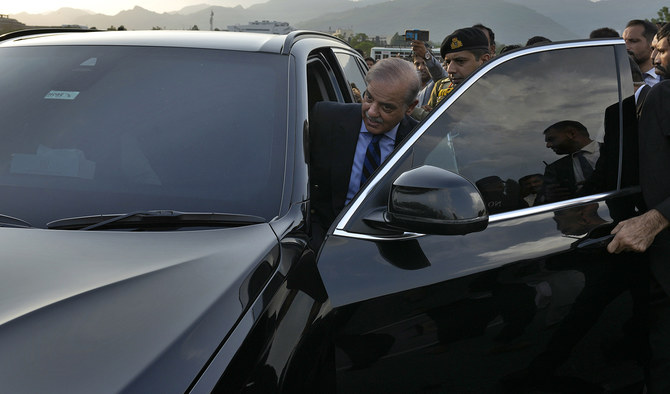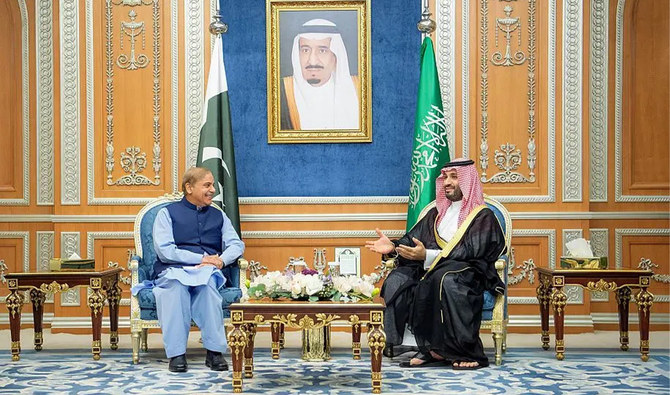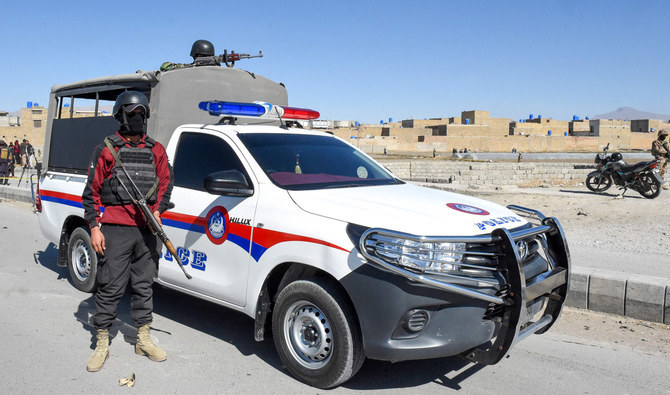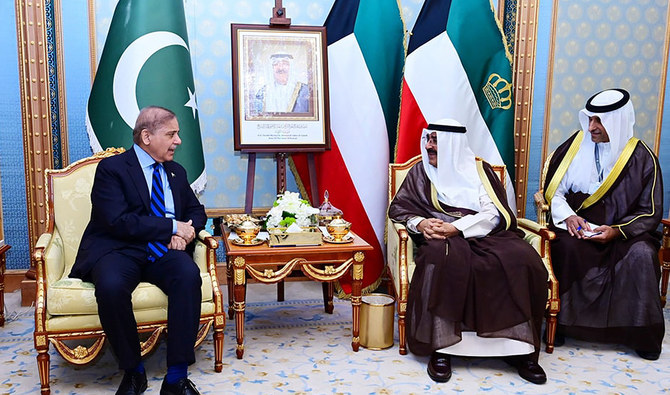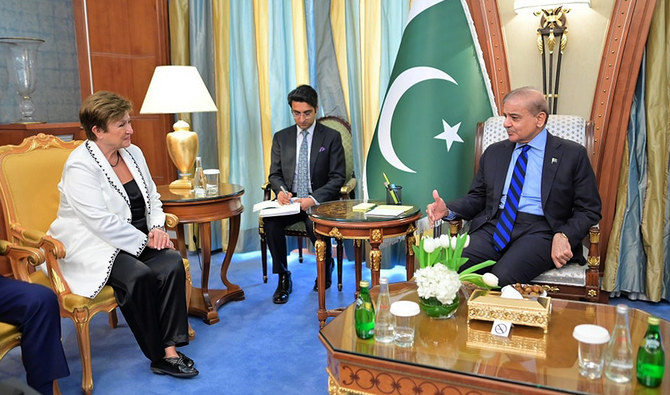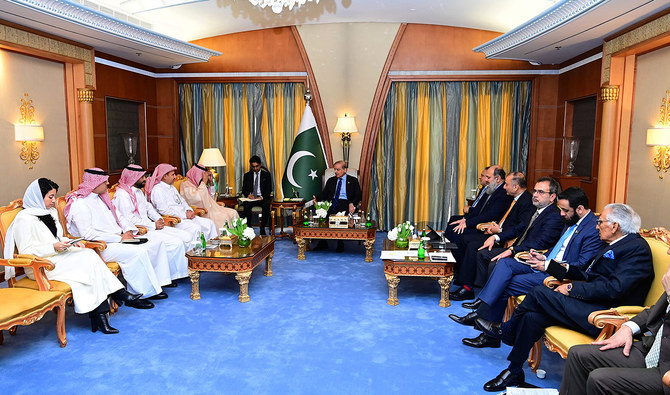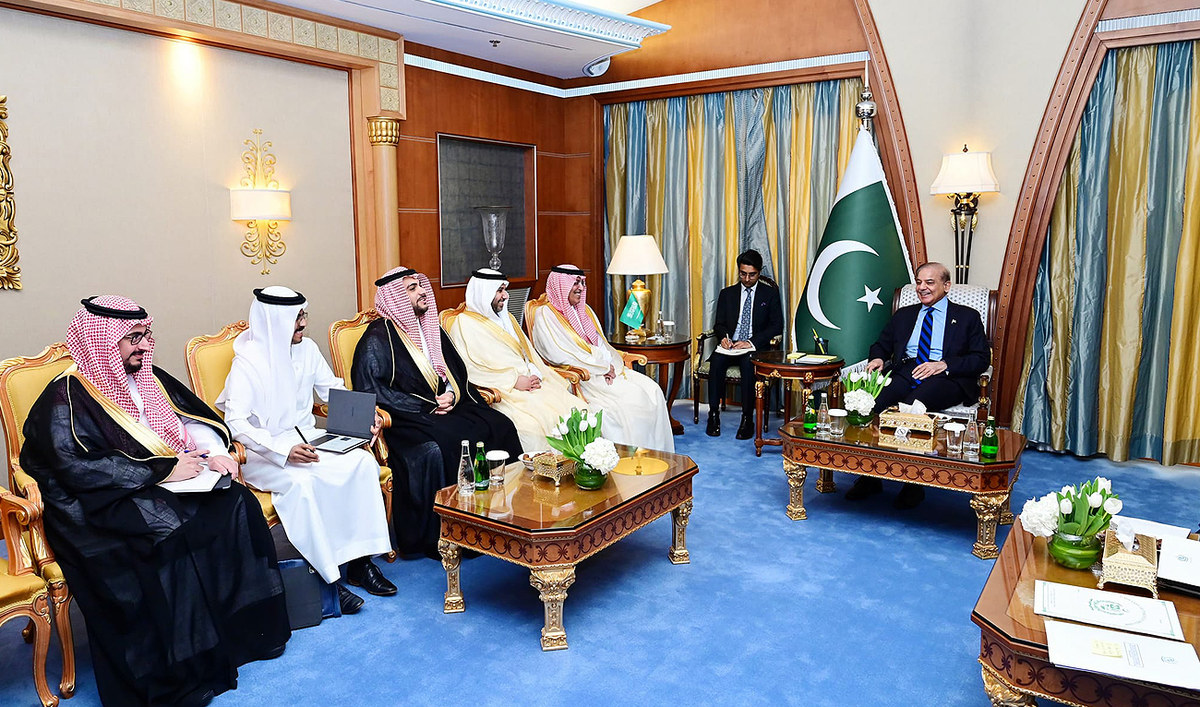ISLAMABAD: When Pakistani Prime Minister Imran Khan lost a no-confidence vote in parliament last April, he was one in a long line of Pakistani premiers who went home before their time.
In fact, no prime minister had at that point completed a full five-year tenure in Pakistan’s 75-year history. Today, with the assemblies dissolved, Prime Minister Shehbaz Sharif, who was voted in by parliament on April 12 days after Khan's ouster, became the first Pakistani PM to complete his term, albeit a shorter one of just 16 months.
Pakistan, a parliamentary democracy for most of its history, has had a total of 30 prime ministers since 1947 - one of whom took on the role twice in one year.
On 18 occasions, they have been removed on different pretexts, including corruption charges, direct military coups and forced resignations due to infighting in ruling groups. There was one assassination.
The remaining premiers held the position for a limited time as caretakers to oversee fresh elections or to see out a dismissed premier’s tenure.
The year 1993 was particularly fraught, with five changes in the premiership.
The shortest tenure for a prime minister is two weeks, while the longest is four years and two months.
Mian Muhammad Nawaz Sharif has been elected prime minister three times - in 1990, 1997 and 2013 - the most for a single candidate.
Following is a list of prime ministers whose tenures ended prematurely since 1947. It does not include caretaker premiers or those who completed another prime minister’s term:
- Liaquat Ali Khan
Pakistan’s first prime minister. Took office in August 1947. He was assassinated at a political rally on Oct. 16, 1951.
Tenure: Four years and two months.
- Khawaja Nazimuddin
Took office on Oct. 17, 1951. He was dismissed on April 17, 1953, by the country’s governor general - a powerful position inherited from British colonial rule - on charges of mismanaging religious riots.
Tenure: One year and six months.
- Muhammad Ali Bogra
Took office April 17, 1953. Resigned on Aug. 11, 1955.
Tenure: Two years and three months.
- Chaudhri Mohammad Ali
Took office in August 1955. Internal differences in the ruling party led to his ouster on Sept. 12, 1956.
Tenure: One year and one month.
- Hussain Shaheed Suhrawardy
Took office on Sept. 12, 1956. Forced from office after differences with other power centres on Oct. 18, 1957.
Tenure: One year and one month.
- Ibrahim Ismail Chundrigar
Took office in October 1957. Resigned on Dec. 16, 1957, faced with a no-confidence vote in parliament.
Tenure: Less than two months.
- Malik Feroz Khan Noon
Took office Dec. 16, 1957. Dismissed due to the imposition of martial law in Pakistan on Oct. 7, 1958.
Tenure: Less than 10 months.
- Noorul Amin
Took office Dec. 7, 1971. Left office on Dec. 20, 1971, shortly after the secession of Bangladesh from Pakistan.
Tenure: Less than two weeks.
- Zulfikar Ali Bhutto
Took office on Aug. 14, 1973. He was overthrown by a military coup on July 5, 1977, and eventually jailed and executed.
Tenure: Three years and 11 months.
- Muhammad Khan Junejo
Took office in March 1985. He was dismissed on May 29, 1988, by the military chief who was also the president.
Tenure: Three years and two months.
- Benazir Bhutto
Daughter of slain premier Zulfikar Ali Bhutto and the first woman leader of a Muslim nation. Took office on Dec. 2, 1988. Her government was dismissed on Aug. 6, 1990, by the president, a close aid of the deceased military ruler, on charges of corruption.
Tenure: One year and eight months.
It would be the first of three governments dismissed on similar charges using the sweeping powers of the president.
- Mian Muhammad Nawaz Sharif
Took office Nov. 6, 1990. His government was also dismissed by the president on similar charges as Bhutto on April 18, 1993.
He was able to get the decision overturned by the courts a few weeks later and returned to office, but resigned again after differences with the military.
Total tenure: Two years and seven months.
- Benazir Bhutto
Returned to power for her second tenure in Oct. 19, 1993. Was dismissed by the president once again on charges of misgovernance on Nov. 5, 1996.
Tenure: Just over three years.
- Nawaz Sharif
Came to power a second time on Feb. 17, 1997. Overthrown by a military coup - the third in Pakistan’s history - on Oct. 12, 1999.
Tenure: Two years and eight months.
- Mir Zafarullah Khan Jamali
Elected prime minister during military rule in November 2002. He resigned after differences with the military on June 26, 2004.
Tenure: One year and seven months.
- Yousaf Raza Gilani
Elected prime minister on March 25, 2008. He was disqualified by the Supreme Court of Pakistan in 2012 on charges of “contempt of court”.
Tenure: Four years and one month.
- Nawaz Sharif
Elected prime minister for a third time on June 5, 2013. He was dismissed by the Supreme Court of Pakistan on charges of concealing assets on July 28, 2017.
Tenure: Four years and two months.
- Imran Khan
Elected as prime minister on Aug. 18, 2018. Voted out of power via a no-confidence motion by the opposition on April 10, 2022.
Tenure: Three years and seven months.
- Shehbaz Sharif
Elected as prime minister on April 12, 2022. Stepped down after completing term on August 12.
Tenure: One year and four months.
With inputs from Reuters



